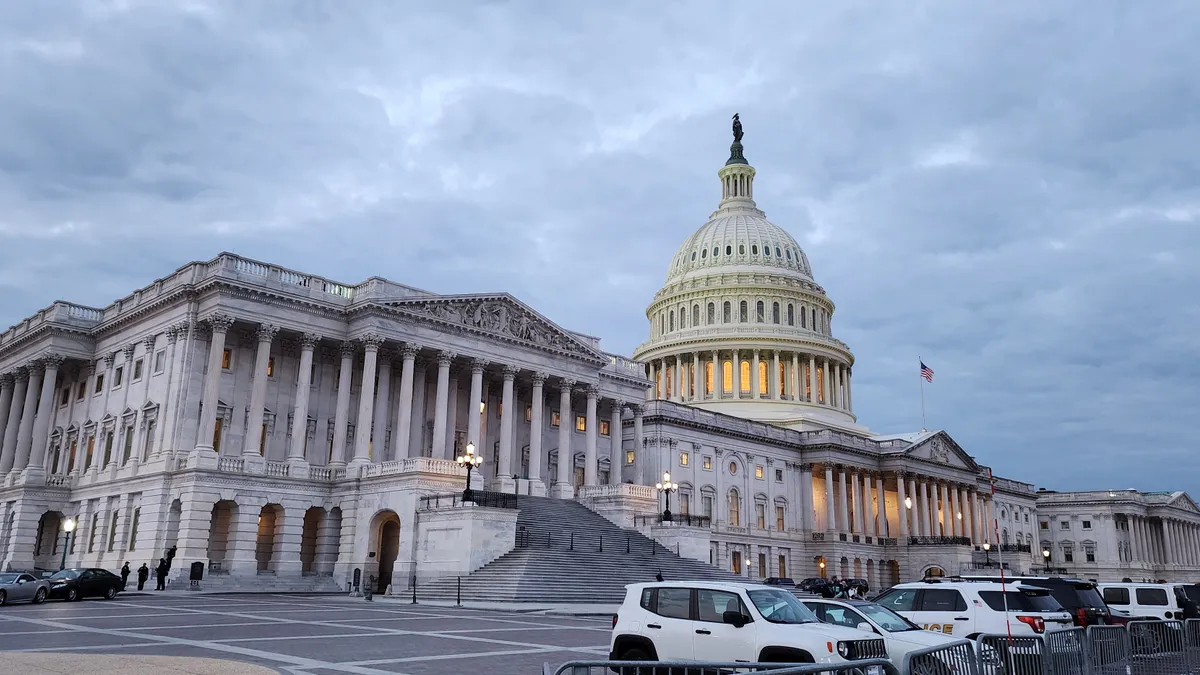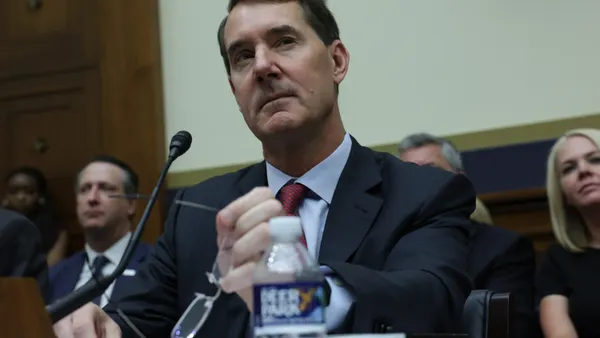Dive Brief:
- House Democrats last week introduced a bill that would codify regulatory requirements that large banks have a chief risk officer.
- The legislation, which lawmakers said is in response to the recent string of bank failures, would require banks with $50 billion or more in assets to notify their federal and state regulators within 24 hours of a chief risk officer position becoming vacant.
- Silicon Valley Bank, whose collapse in March set in motion a crisis of confidence in the banking industry, was without a risk chief through much of 2022, according to the company’s 2023 proxy statement.
Dive Insight:
The bill, sponsored by Rep. Sean Casten, D-IL, would require large banks, within seven days of a vacancy, to submit a plan to their regulator on how they would search for and hire a chief risk officer.
If the position remains vacant after 60 days, the bank must notify the public and be subject to an automatic cap on their asset growth until the vacancy is filled, according to the bill.
“It was a clear mistake for Silicon Valley Bank to be without a Chief Risk Officer during a critical nine-month period preceding its collapse, particularly for a bank that held a high percentage of uninsured deposits in historically less stable industries,” Casten said in a statement Wednesday.
The bill is one of almost a dozen introduced last week by House Democrats aiming to reform the banking industry in the wake of the collapse of SVB, First Republic and Signature Bank.
One bill, backed by Rep. Maxine Waters, D-CA, the ranking member of the House Financial Services Committee, would give regulators the authority to claw back compensation and impose fines on bank executives that negligently contributed to their bank’s failure. The bill would also ban negligent bank executives from future work in the industry.
Another bill introduced by Waters would expand bank regulators’ authority to prohibit stock sales by bank executives, while another would subject firms without bank holding companies to the same capital, liquidity, stress testing and resolution planning as large banks with holding companies.
“The failures of Silicon Valley Bank, Signature Bank and First Republic Bank make clear that it is past time for legislation aimed at strengthening the safety and soundness of our banking system and enhancing bank executive accountability,” Waters said in a statement Wednesday. “Congress must not sit idly by. I'm proud of the hard work of Committee Democrats to address these issues with our first round of legislation responding to these bank failures.”
The Senate Banking Committee on Wednesday passed its own bipartisan bank executive compensation clawback bill.














